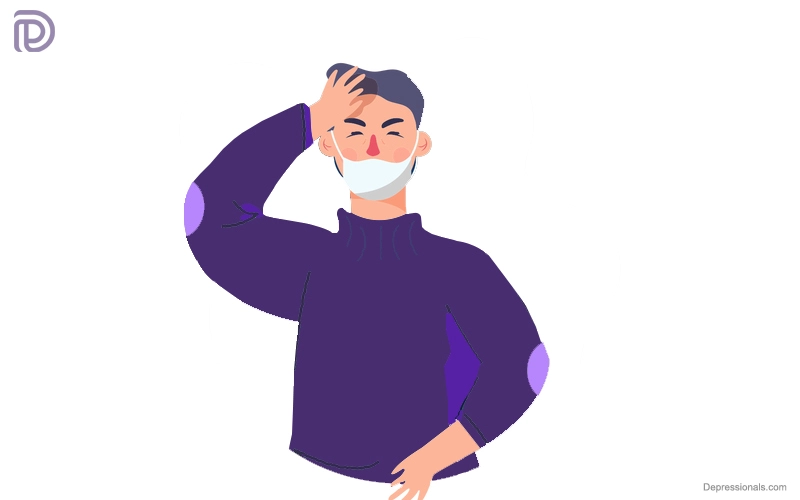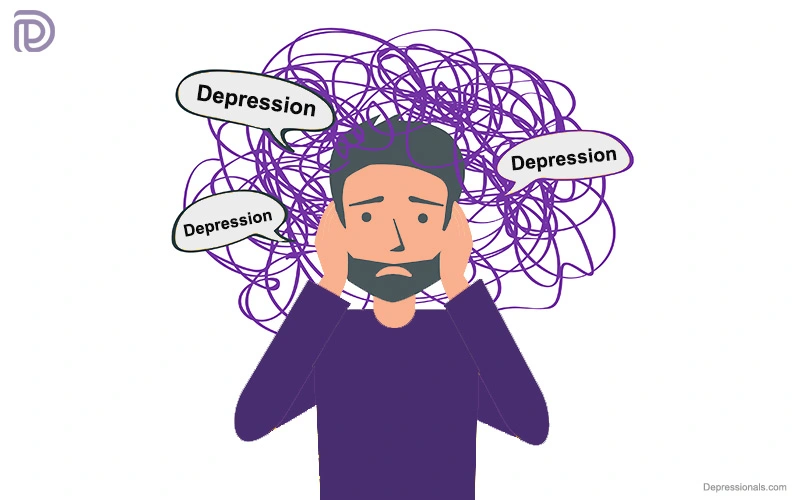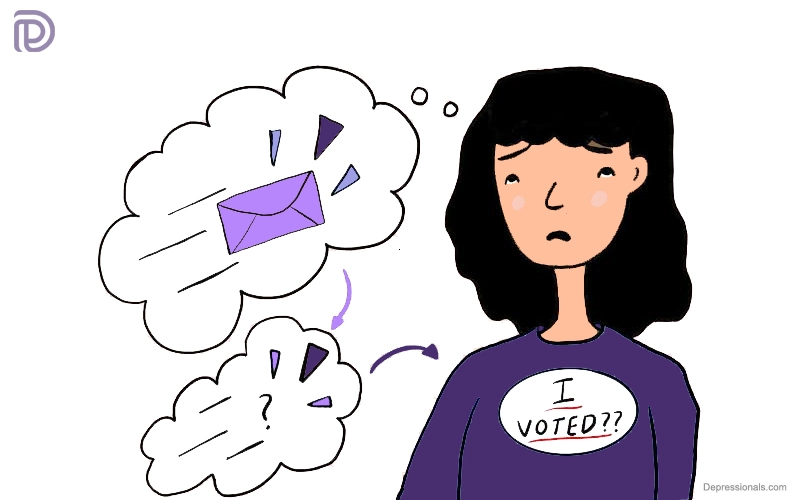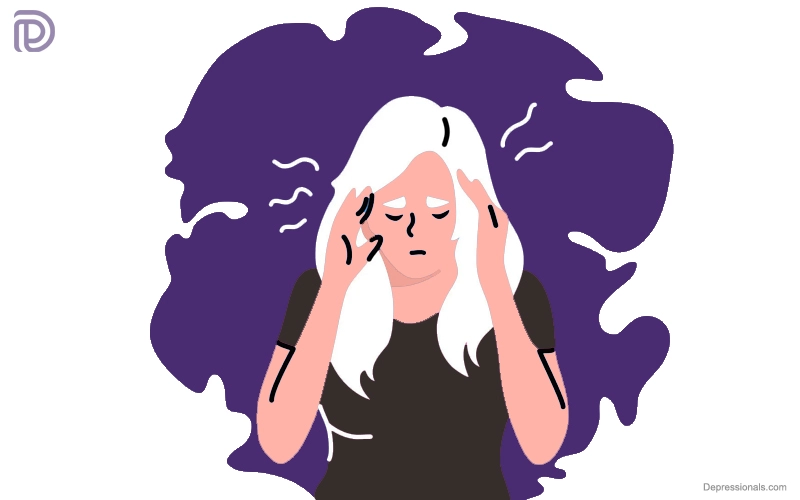To someone who has never experienced depression, it can be challenging to convey this mental health condition. Sometimes, the only people who can truly understand depression are those who have gone through it themselves. According to the World Health Organization, an estimated 3.8 percent of the world’s population suffers from depression, with 5 percent of adults and 5.7 percent of individuals over 60 years of age being affected.
Depression is a mental disorder that particularly targets the mood of a person. Depression causes you to feel an abnormally long-lasting state of extreme sadness or hopelessness. No matter what you do, the disease will cause you to feel depressed all the time and will affect how you live your life — your viewpoint will be affected by the sadness which may lead to you finding it difficult to carry out your daily responsibilities and keep control of your life. However, the sad reality is that despite how terrible depression is, many individuals still experience it and go through life without us being able to notice their suffering.
Read: What is Vaginismus
What is Depression?
Depression, also known as major depressive disorder, is a significant medical condition that frequently affects people’s feelings, thoughts, and behaviors. Depression is a type of mood disorder that results in a constant feeling of sadness and loss of interest in life. It is true that depression is a mental disorder, however, what affects the mind will affect the body — untreated depression can disrupt your daily life and result in an avalanche of other problems, particularly in life and in the body.
Symptoms of Depression
In the modern world, it is common to feel down about some things, particularly terrible news, unfortunate events, and problems. Feeling depressed or down is one of our bodies’ responses to unfavorable events in our lives. It is natural to occasionally feel depressed and sad about things; however, depression is more than that. Depression is characterized by a persistent, abnormally strong sense of sadness and loss of interest that may call for long-term treatment.
Being sad about something is very different from having depression. Here are some symptoms of depression that you should be aware of:
- Sadness, tears, emptiness, or a sense of futility
- Irrational behavior, agitation, especially about trivial issues
- Loss of enjoyment or interest in activities you formerly enjoyed
- Difficulty sleeping (insomnia)
- Feeling fatigued and lacking the energy to do simple chores or activities
- Weight loss and loss of appetite
- Weight gain and increased desire for food
- A feeling of unease, anxiety, or worry
- Sluggish speech, posture, or other physical motions
- Feelings of shame or worthlessness, a fixation on mistakes made in the past, or self-blame
- Slow thinking, difficulty focusing, having trouble recalling specifics, and having a hard time deciding on things
- Thoughts of death, suicide, and other constant suicidal behavior
- More physical issues such as headaches and body pain
Read: Types of Telehealth
What is High-functioning Depression?
High-functioning depression is a term commonly used to describe a person that has depression symptoms but appears to be fine and in good health — they can function well in every area of life, such as work, school, home, and relationships. High-functioning depression somewhat contrasts with what a depressed person would do. The majority of individuals with depression disorder often show clear symptoms and show that they are struggling; it is clear that depression is making them suffer and that it interferes with their overall life. In other words, it is clear from its effects and symptoms that a person is suffering from depression disorder.
With high-functioning depression, you likely won’t notice that a person is suffering from depression — they can go about their daily life and function normally. It is different from coping, the various methods that people use to deal with depression; to self-medicate, some people may take drugs, other people may eat to find comfort, and some may withdraw or isolate themselves. But other people have what is referred to as “high-functioning” depression. This is a milder variety of depression that is simpler to conceal from others.
However, the term “high functioning” gives the false impression that because a person can function, there is no urgent need for help. The fact that a person can carry on with their daily activities despite being depressed does not imply that they are not suffering or in need of assistance.
What are the Signs of High-functioning Depression?
An individual with high-functioning depression might give the impression of sadness or poor energy but still be able to complete tasks. You could be depressed but keep going because you believe you can force yourself to finish the day.
Many of the recognizable symptoms of clinical depression are still present in someone who struggles with high-functioning depression. However, this type of persistent depression has several distinctive characteristics, such as:
- Symptoms appear more controllable since they are less severe than those of major depressive disorder
- Despite some sadness, the person can function at work and sustain regular, healthy relationships
- They may suffer from persistent bodily symptoms, such as headaches and stomach discomfort, in an effort to conceal their actual emotions from loved ones
- Even though they are capable of carrying out regular duties, they must put a lot of effort into whatever they accomplish
Here are some high-functioning depression signs that you need to be aware of:
- Enduring a constant sense of emptiness or despair
- Having a negative or hopeless attitude but still pushing through the day
- Feeling intense guilt or worthlessness
- Feeling agitated or worried
- Becoming easily bored or always feeling bored
- Experiencing a need to withdraw from those around
- Tiring out quickly from simple tasks
- Moving or speaking slowly
- Having issues with concentration, memory, or decision-making
- Having difficulty and changes in sleep
- Experiencing fast changes in appetite and weight
- Thinking of suicide, self-harm, or death
Read: Effects of Election’s Anxiety and Depression
What are Treatments for High-functioning Depression?
Although someone with depression could be considered “high functioning,” this does not indicate that they do not require help. Here are some available treatments if you or a loved one is suffering from high-functioning depression:
- Medication: The symptoms of depression, especially high-functioning depression, are treated with a variety of medications known as antidepressants. These therapies can lessen symptoms including low mood, sleep disruption, and poor focus. There are benefits and drawbacks to each medicine, so it’s typical to attempt several treatments with the help of healthcare professionals before finding one that works for you.
- Therapy: Therapy is one of the best treatments for high-functioning depression. There are several types of therapy that are effective at treating depression, including individual psychotherapy, cognitive behavioral therapy (CBT), relational therapy, behavioral activation therapy, and psychodynamic therapy.
- Support groups: If you feel uncomfortable talking to others in your life about your depression, support groups can be useful in providing a secure environment for you to discuss it with individuals who have experienced similar things. In support groups, people with depression may share their stories and get encouragement, empathy, understanding, and support from others. These kinds of groups are best suited for those who are currently receiving treatment for depression from a health professional but who also want to connect personally with others who have experienced similar circumstances and who can provide support.
What can a loved one or friend do to help with Depression?
Depression is a serious disorder that needs immediate help and attention. The easiest way to determine whether someone in your life is depressed is to be aware of the symptoms and signs of depression. Here are things you can do to help someone with depression:
- Become knowledgeable about depression
- If someone exhibits symptoms, engage them in conversation and find out how they are doing
- Listen to them — be attentive and open
- Always give them the impression that you are there for them
- Encourage them to look out for professional assistance
- Continue to be there for them even when they seek professional assistance
The best thing you can do is to help and encourage them in getting the proper care and treatment from specialists. People wrongly assume that willpower alone should be sufficient to help them overcome their depression; all too often, they feel ashamed of their mental disorder. But depression seldom goes better on its own and sometimes grows worse — the person you care about can get better with the appropriate treatment strategy that meets their needs.
Read: Difference Between Sadness and Depression
Drugs and alcohol can lead to Depression
People can experience high-functioning depression for a variety of reasons, including major changes in their life, such as a medical condition, losing a loved one, moving, or having a job or role that is unsatisfactory or unwanted, among other reasons. If they can’t or don’t want to address the root cause of their unhappiness, they may attempt to get comfort and relief from other things, like drugs or alcohol. Without the right guidance and supervision, many individuals turn to drugs and alcohol to cope, which frequently results in depression.
One dangerous substance that many turn to is opioids. Opioids are a large class of painkillers that people frequently abuse to escape from the pain or discomfort of their life. Abusing this powerful drug can lead to depression, and is also used by individuals with depression to cope with their symptoms. To effectively treat depression, it is important to address opioid addiction first. To safely get off opioids, patients can use Recovery Delivered — an online suboxone doctor in the United States.
For those suffering from Alcoholism, you can head to join monument, to get medication to help with treating alcoholism as well as counseling on the use of alcohol.
Recovery Delivered is an easy online suboxone treatment for opioid addiction that offers medication-assisted treatment through our online Suboxone doctors; it enables individuals to receive the assistance they require to overcome addiction — no matter where you are, our online Suboxone physicians can assist you in beginning your journey to recovery. Don’t fight the battle alone — take a massive step towards taking back control of your life and contact us today.





